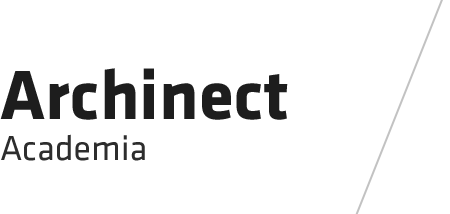
Miami, FL

CORAL GABLES, FL (April 16, 2015)
The University of Miami School of Architecture today announced a plan to bring “third places” – community spaces, marketplaces, incubators and training centers – into two underserved Miami neighborhoods with $650,000 from the John S. and James L. Knight Foundation.
The Third Place Project will create spaces that provide resources and support to entrepreneurs, creatives and civic leaders in these neighborhoods, as a way to foster their ideas and break down barriers. It will also help transform these neighborhoods and create opportunities for local businesses, by establishing inexpensive spaces for startups and hubs for arts, culture and entertainment. The grant will supportMomentum2: The Breakthrough Campaign for the University of Miami.
“A major challenge in the Miami metro area is the disconnect between extraordinarily wealthy neighborhoods and boom areas and long-struggling urban neighborhoods such as Allapatah, Little Haiti and Opa-locka,” said Charles Bohl, associate professor and the director of the graduate program in Real Estate Development + Urbanism at the University of Miami’s School of Architecture. “The Third Place Project is designed to draw on the unique cultures, social capital and entrepreneurial talent in these neighborhoods and establish focal points, ‘third places,’ capable of attracting people to visit these neighborhoods and participate in their local economies.”
“By activating neighborhoods with a high rate of entrepreneurial activity but few resources, we can bridge gaps in Miami’s innovation ecosystem and ensure a constant diversity of ideas,” said Matt Haggman, Knight Foundation program director for Miami. “The Third Place Project will grow and foster the unique character and qualities of these neighborhoods, bringing the ideas of entrepreneurs, artists and others into the forefront and making Miami more of a place where ideas are built.”
The Third Place Project will combine expertise from the School of Architecture in architecture and placemaking with University of Miami programs in business and social entrepreneurship. Other university departments involved in the Third Place Project include the Center for Urban and Community Design, the Office of Civic and Community Engagement, as well as business startup and support programs at the School of Business Administration. The project will also support weeklong residencies with nationally recognized “civic innovators” who will come to Miami and work with students, faculty, local entrepreneurs and nonprofits.
The university project team will work with local nonprofits and other interested parties to identify and secure sites that have the best potential to serve as gathering places. Architecture faculty and students will help adapt existing buildings, or create inexpensive, moveable incubator structures – “pop-up” buildings – to house entrepreneurs and vendors. Incubator structures will be arranged to create market places in public spaces or main streets that showcase the mix of art, commerce, food and entertainment.
Dozens of vendors, artists and entrepreneurs will receive training and other opportunities through the project. The incubator spaces created by the project will provide inexpensive space for startups in each community, and expand economic opportunities for local nonprofits and local development organizations. The project will also train nonprofit place managers to continue curating, marketing and managing these places to sustain the project going forward.
“The School of Architecture has a long history of helping to reshape and revitalize the South Florida community,” said Rodolphe el-Khoury, dean of the University of Miami School of Architecture. “We are pleased that Knight Foundation has chosen to support this unique project that will have a lasting impact on communities in need of assistance.”
“Third places,” as defined by sociologist Ray Oldenberg, are the essential informal public gathering places of great neighborhoods and communities. They are the cafes, taverns, public markets and main streets where people from all walks of life come together. In poorer, ethnically distinct neighborhoods these places have also provided opportunities for local entrepreneurs to celebrate the unique art, culture, cuisine, crafts, architecture and commerce of their people. In gateway cities, “third places” such as Little Italy in New York, Chinatown in San Francisco, and Little Havana in Miami, have become destinations for an endless stream of visitors who help foster the local economy.
The Third Place Project is currently evaluating project sites and is slated to begin work during the 2015-2016 academic year.
Support for The Third Place Project forms part of Knight Foundation’s efforts to invest in Miami’s emerging innovators and entrepreneurs as a tool to build community, while fostering talent and expanding economic opportunity. Over the past two years Knight has made more than 100 investments in entrepreneurship in South Florida.
Momentum2: The Breakthrough Campaign for the University of Miami seeks to advance learning, elevate scholarship, and make bold strides in health care in the community, across the country, and around the world. With a goal of raising $1.6 billion by 2016, Momentum2 comes on the heels of the institution’s record-breaking Momentum: The Campaign for the University of Miami, which concluded at the end of 2007 and raised more than $1.4 billion for endowed chairs and professorships, scholarships, facilities, academic and medical programs, and other initiatives.
About the John S. and James L. Knight Foundation
Knight Foundation supports transformational ideas that promote quality journalism, advance media innovation, engage communities and foster the arts. We believe that democracy thrives when people and communities are informed and engaged. For more information, please visit knightfoundation.org.
No Comments
Block this user
Are you sure you want to block this user and hide all related comments throughout the site?
Archinect
This is your first comment on Archinect. Your comment will be visible once approved.